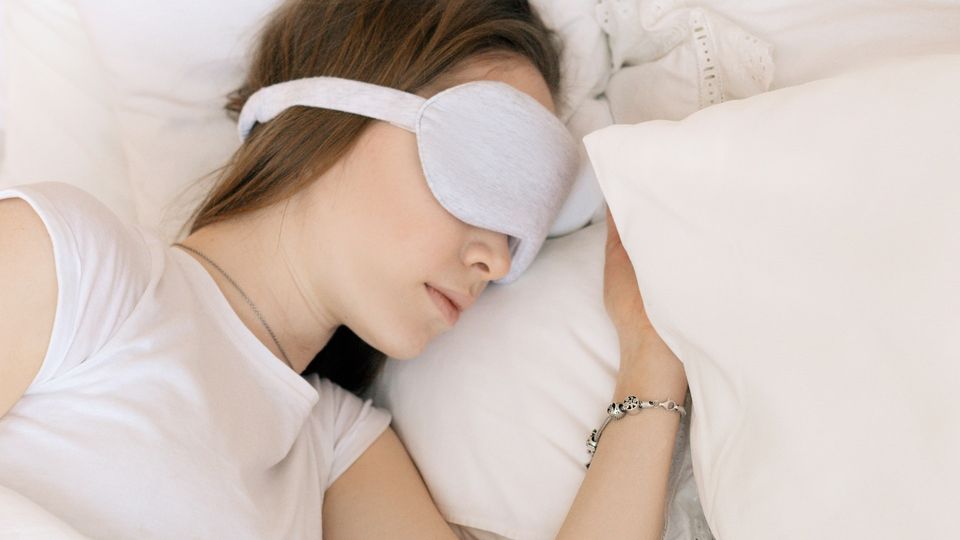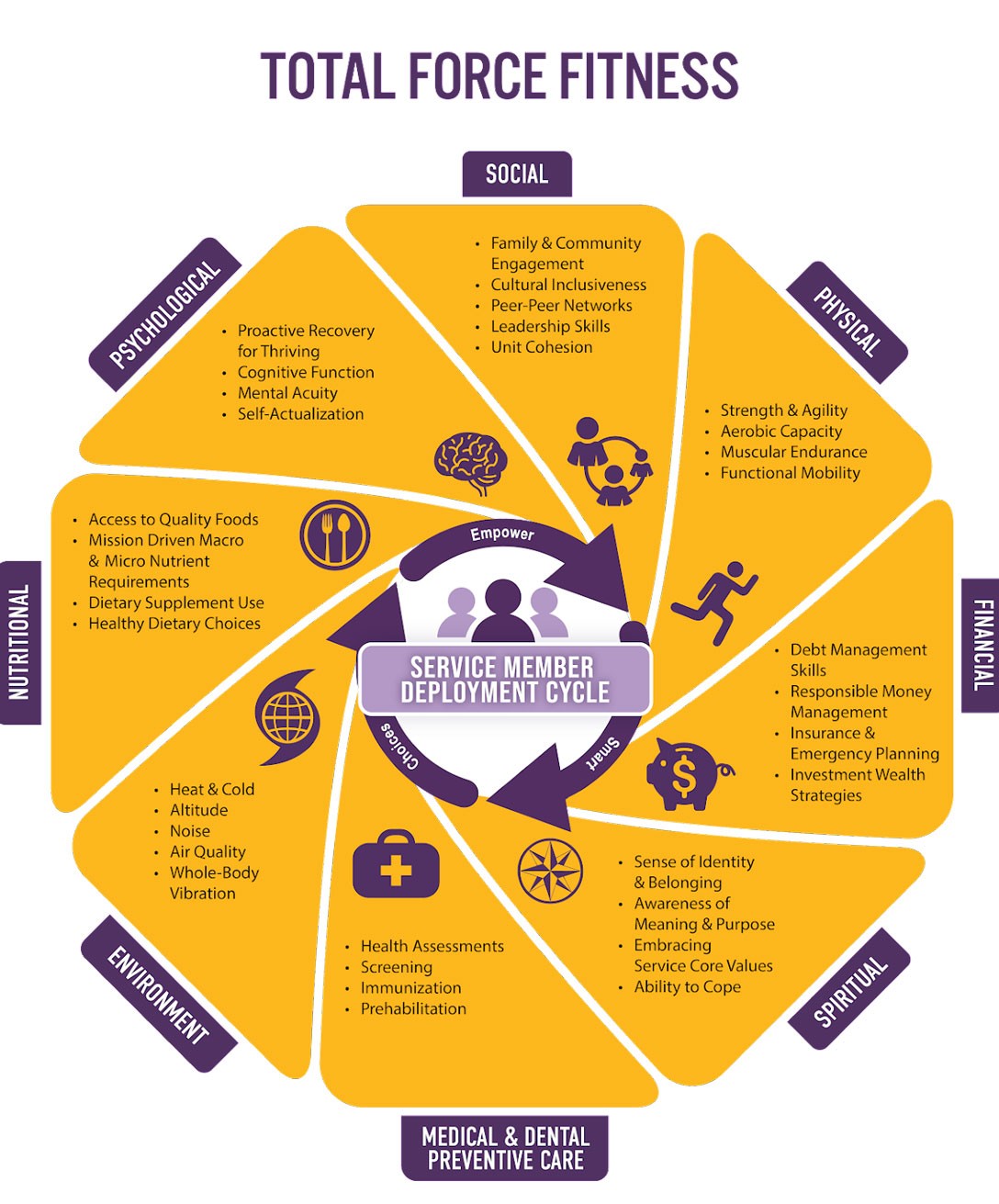Quality Sleep Boosts Resilience By 40%: The Rest-Wellness Connection
Imagine if you could significantly increase your ability to bounce back from adversity, handle stress with ease, and maintain a positive outlook on life – all by simply getting a good night’s sleep. Well, it turns out that the secret to enhancing your resilience may lie in the quality of your sleep. In a groundbreaking study, researchers have discovered a remarkable connection between rest and wellness, revealing that quality sleep can boost resilience by an astounding 40%. So, if you’re looking to build up your mental and emotional strength, it seems that prioritizing your sleep could be the key to unlocking a whole new level of resilience and well-being.
The Importance of Quality Sleep
When it comes to overall well-being and resilience, quality sleep plays a crucial role. Sleep has a significant impact on our physical health, mental clarity, emotional balance, and overall ability to handle life’s challenges. Without sufficient, restorative sleep, we may find ourselves feeling exhausted, irritable, and less equipped to cope with stressors. Therefore, it is essential to prioritize and prioritize good sleep habits.
Effects of Sleep on Resilience
Resilience is the ability to bounce back from adversity and maintain well-being in the face of challenging circumstances. It is a highly valuable attribute that can greatly enhance our quality of life. Studies have found a strong correlation between quality sleep and resilience, suggesting that individuals who consistently get enough high-quality sleep are more resilient to various stressors.
When you experience quality sleep, your brain and body are better equipped to handle and adapt to stress. Sleep helps regulate our emotions, improve our cognitive functions, and boost our immune system, making us more resilient when faced with difficult situations. Furthermore, adequate sleep allows us to recover and recharge, both mentally and physically, enabling us to face each day with renewed energy and vitality.
Defining Quality Sleep
Quality sleep is more than just the number of hours spent in bed; it involves both the quantity and the depth of your sleep. The National Sleep Foundation recommends that adults aim for seven to nine hours of sleep each night. However, it’s not just about the duration; it’s also about the quality of your sleep. Deep, restorative sleep cycles, including both rapid eye movement (REM) and non-REM stages, are essential for waking up feeling refreshed and rejuvenated.
During your sleep, your brain and body go through several crucial processes, such as memory consolidation, hormone regulation, tissue repair, and immune system strengthening. These processes are optimized during periods of deep sleep, allowing your body to recover and strengthen its resilience for the next day’s challenges.
Factors Affecting Sleep Quality
Various factors can influence the quality of your sleep. These include lifestyle choices, environmental factors, and personal habits.
One significant factor is stress. Stress can affect both the ability to fall asleep and the quality of your sleep. Persistent stress can lead to increased arousal, making it challenging to achieve deep sleep and causing sleep disturbances throughout the night. It is crucial to develop effective stress management techniques to minimize its impact on your sleep quality and overall resilience.
Another factor is the sleep environment. Creating a sleep-friendly space can greatly enhance sleep quality. Factors such as noise, light, temperature, and comfort level all play a role in determining the quality of your sleep. It’s important to create a relaxing, dark, and quiet environment that promotes relaxation and tranquility.
Additionally, lifestyle choices, such as diet and exercise, can affect the quality of your sleep. Poor dietary choices, especially consuming caffeine or heavy meals close to bedtime, can interfere with falling asleep and staying asleep. Regular physical activity, on the other hand, can improve sleep quality by promoting a sense of tiredness and relaxation in the evening.
Resilience: An Essential Attribute
Resilience is a crucial attribute that helps us navigate through life’s challenges and bounce back from adversity. By cultivating resilience, we can enhance our overall well-being and effectively manage stressors.
Understanding Resilience
Resilience can be defined as the ability to adapt and thrive in the face of adversity, trauma, or significant stressors. It involves the capacity to cope with challenging situations, maintain emotional balance, and recover from setbacks. Resilient individuals are better equipped to handle stress, maintain positive mental health, and maintain a sense of well-being even during difficult times.
Benefits of Resilience
Developing resilience has numerous benefits for our mental, emotional, and physical well-being. Resilient individuals are better equipped to handle stress, manage their emotions effectively, and maintain healthy relationships. They exhibit higher levels of self-confidence, optimism, and overall life satisfaction. Resilience also supports physical health by strengthening the immune system, reducing the risk of chronic illnesses, and promoting faster recovery from injuries or illnesses.
By cultivating resilience, we can approach life’s challenges with a positive mindset, adapt to change more effectively, and maintain our well-being even in the face of adversity.

Examining the Rest-Wellness Connection
There is an undeniable connection between sleep and wellness. Getting enough quality sleep is not only crucial for your physical and mental health, but it also plays a significant role in building and maintaining resilience.
The Link between Sleep and Wellness
Sleep and wellness go hand in hand. Adequate sleep is essential for maintaining optimal physical health, cognitive function, emotional well-being, and overall quality of life. When you consistently get enough high-quality sleep, your body functions optimally, allowing you to perform at your best in all aspects of life.
On the other hand, chronic sleep deprivation can have detrimental effects on your wellness. It can lead to increased inflammation, impaired cognitive function, mood disturbances, weakened immune system, and a higher risk of developing chronic health conditions such as obesity, diabetes, and cardiovascular diseases. Lack of sleep can also exacerbate existing mental health conditions such as anxiety and depression. Therefore, prioritizing sleep is crucial for overall wellness.
Importance of Wellness for Resilience
Wellness is a multidimensional concept that encompasses physical, emotional, and mental well-being. When you prioritize your overall wellness, including quality sleep, you are taking proactive steps to enhance your resilience. A well-rested body and mind are better equipped to handle stress, make effective decisions, and maintain positive mental health.
By focusing on wellness, you are investing in your overall ability to adapt, grow, and thrive in the face of adversity. Prioritizing quality sleep is a fundamental component of this holistic approach to resilience and well-being.
Scientific Studies on Sleep and Resilience
Scientific research has consistently highlighted the importance of sleep in building and maintaining resilience. Numerous studies have shed light on the relationship between sleep quality and an individual’s ability to cope with stressors.
Research Findings
A study published in the Journal of Sleep Research found a significant correlation between quality sleep and resilience levels. The researchers discovered that individuals who reported higher sleep quality also exhibited greater resilience in the face of stressful events. The study emphasized the vital role of restorative sleep in enhancing overall resilience.
Another study published in the journal Sleep examined the impact of sleep on the emotional resilience of university students. The findings revealed that students who experienced better sleep quality had higher emotional resilience and were better able to cope with academic stressors. The study concluded that sleep quality plays a crucial role in promoting emotional well-being and resilience in young adults.
The Role of Sleep in Building Resilience
Sleep plays a vital role in building and strengthening resilience. When you experience quality sleep, your brain and body undergo various essential processes that enhance your resilience. These processes include memory consolidation, emotional regulation, immune system strengthening, and overall restoration.
During sleep, the brain consolidates and organizes memories, allowing for better memory retrieval and cognitive function. This process is essential in learning from past experiences, adapting to new situations, and effectively managing stressors. Adequate sleep also improves emotional regulation, helping individuals maintain a positive mindset and effectively cope with emotional challenges.
Furthermore, sleep is crucial for strengthening the immune system. During sleep, your body produces and releases immune cells and proteins that are vital for fighting off infections and supporting overall physical health. By boosting your immune system, sleep helps protect against illnesses and enhances your body’s ability to recover from illnesses or injuries.
In summary, quality sleep plays a significant role in building resilience by enhancing memory consolidation, emotional regulation, and immune system functioning. By getting enough high-quality sleep, you can bolster your resilience and better handle life’s challenges.

Optimizing Sleep for Enhanced Resilience
Now that we understand the importance of sleep in building resilience, let’s explore some strategies to optimize your sleep for enhanced resilience.
Establishing a Consistent Sleep Routine
One of the most effective ways to improve sleep quality is by establishing a consistent sleep routine. Going to bed and waking up at the same time every day, even on weekends, helps regulate your body’s internal clock and promotes better sleep. Consistency reinforces your body’s natural sleep-wake cycle, making it easier to fall asleep and wake up feeling refreshed.
To establish a consistent sleep routine, set a regular bedtime that allows for a sufficient duration of sleep and create a relaxing bedtime routine. Engage in calming activities such as reading a book, taking a warm bath, or practicing relaxation techniques to signal to your body that it’s time to wind down and prepare for sleep.
Creating a Sleep-Friendly Environment
Creating a sleep-friendly environment is essential for optimizing sleep quality. Make your bedroom a peaceful and relaxing space dedicated solely to sleep and intimacy. Ensure the room is dark, quiet, and at a comfortable temperature. Consider using blackout curtains, earplugs, or a white noise machine to minimize any disruptions that may interfere with your sleep.
Invest in a comfortable mattress and pillows that support your sleep position and provide adequate cushioning. Good sleep requires proper spinal alignment, so choose bedding that promotes a neutral sleeping posture.
Integrating Relaxation Techniques before Sleep
Relaxation techniques can help calm your mind and promote a sense of tranquility before bedtime, making it easier to fall asleep and achieve restful sleep. Consider practices such as deep breathing exercises, progressive muscle relaxation, meditation, or gentle stretching. Engaging in these techniques before bed can help alleviate stress, reduce muscle tension, and prepare your mind and body for optimal sleep.
The Role of Nutrition in Sleep and Resilience
Nutrition plays a significant role in sleep quality and overall resilience. What you eat and drink can impact your ability to fall asleep, stay asleep, and achieve optimal restorative sleep.
Impact of Diet on Sleep Quality
Certain dietary choices can either support or disrupt your sleep quality. Consuming heavy meals or caffeine close to bedtime can interfere with falling asleep and disrupt the quality of your sleep. Caffeine is a stimulant that can keep you awake and delay the onset of sleep. Additionally, spicy or acidic foods may cause indigestion or heartburn, making it uncomfortable to sleep.
On the other hand, including certain nutrients in your diet can promote better sleep. Foods rich in tryptophan, an amino acid precursor to serotonin and melatonin, can support relaxation and sleep. Examples include turkey, salmon, chicken, nuts, seeds, and dairy products. Complex carbohydrates, such as whole grains and legumes, can also contribute to better sleep by increasing serotonin production.
Foods that Promote Quality Sleep
In addition to tryptophan-rich foods, several other foods can promote quality sleep. Cherries, for example, are a natural source of melatonin and can aid in sleep regulation. Other foods rich in melatonin include kiwi, almonds, and walnuts. These foods can be incorporated into evening snacks or added to a bedtime routine to support better sleep.
Furthermore, magnesium-rich foods, such as leafy greens, legumes, nuts, and seeds, can promote relaxation and help improve sleep quality. Magnesium plays a role in activating the parasympathetic nervous system, which promotes a state of calm and relaxation.
Hydration and its Effect on Sleep
Maintaining adequate hydration is crucial for optimal sleep quality and overall well-being. Dehydration can cause discomfort, frequent waking up during the night, and increased sleep disturbances. It is important to consume enough water throughout the day and limit fluids closer to bedtime to prevent disruptions during sleep.
To enhance sleep quality, consider incorporating a balanced diet that includes foods rich in sleep-promoting nutrients such as tryptophan, melatonin, and magnesium. By making conscious dietary choices, you can support your sleep and overall resilience.

Technological Solutions for Improving Sleep
With advancements in technology, various devices and tools are available to help improve sleep quality and enhance overall resilience.
Sleep Tracking Devices
Sleep tracking devices, such as fitness trackers or smartwatches, can provide valuable insights into your sleep patterns and quality. These devices monitor your sleep duration, sleep stages, and sleep disturbances. By tracking your sleep, you can identify any patterns or factors that may be affecting your sleep quality and make necessary adjustments.
Some sleep trackers also offer features such as silent alarms, which gently wake you up during a light sleep stage, minimizing sleep inertia and promoting a more refreshed awakening. By utilizing sleep tracking devices, you can gain a better understanding of your sleep habits and make informed decisions to optimize your sleep.
Smart Beds and Bedding
Smart beds and bedding technology have also emerged as innovative solutions to improve sleep quality. These products utilize various features, such as adjustable firmness, temperature regulation, and sleep tracking capabilities, to personalize and optimize your sleep experience.
Adjustable beds, for example, allow you to customize your sleeping position, providing optimal support and comfort for your body. Temperature-regulating bedding, such as cooling pillows or mattress toppers, can help regulate body temperature, keeping you cool and comfortable throughout the night.
By utilizing technological solutions such as sleep tracking devices and smart beds, you can take a proactive approach to enhance your sleep quality and, ultimately, your resilience.
Other Strategies for Enhancing Resilience through Sleep
In addition to optimizing sleep habits and utilizing technological solutions, there are other strategies that can further enhance your resilience through sleep.
Exercise and Physical Activity
Regular exercise and physical activity have been shown to improve sleep quality and increase resilience. Engaging in moderate-intensity aerobic exercise or incorporating strength training into your routine can promote better sleep by reducing feelings of anxiety and stress. Exercise also helps regulate your body’s internal clock, promoting a more regular sleep-wake cycle.
However, it is important to avoid vigorous exercise close to bedtime, as it can elevate your heart rate and stimulate your body, making it harder to fall asleep. Aim to complete your exercise routine at least a few hours before bed to allow your body time to wind down and prepare for sleep.
Stress Management Techniques
Managing stress effectively is crucial for promoting quality sleep and building resilience. Chronic stress can interfere with your ability to fall asleep and stay asleep, leading to sleep disturbances and reduced sleep quality.
To manage stress, consider incorporating stress reduction techniques into your daily routine. This can include activities such as practicing mindfulness, deep breathing exercises, journaling, or engaging in hobbies that promote relaxation. By reducing stress levels, you can create a conducive environment for restful sleep and enhance your overall resilience.
Mindfulness and Meditation
Mindfulness and meditation practices have been shown to have significant benefits for both sleep quality and resilience. These practices involve focusing on the present moment, cultivating awareness, and promoting relaxation.
Incorporating mindfulness or meditation into your daily routine, particularly before bed, can help calm your mind, reduce anxiety, and prepare your body for sleep. By practicing mindfulness or meditation, you can enhance your sleep quality and develop the resilience necessary to navigate through life’s challenges.

The Role of Healthcare Professionals in Sleep and Resilience
When it comes to optimizing sleep and promoting resilience, healthcare professionals play a vital role. They can provide guidance, assessments, and treatment options for individuals experiencing sleep disturbances or seeking to enhance their resilience.
Sleep Assessments and Consultations
Healthcare professionals, such as sleep specialists or primary care physicians, can conduct sleep assessments to identify any underlying sleep disorders or factors contributing to poor sleep quality. Through comprehensive evaluations, including sleep history, questionnaires, and potentially overnight sleep studies, they can gather essential information to diagnose and address any sleep-related concerns.
Consulting with a healthcare professional can provide valuable insights into your sleep patterns, help identify any potential sleep disorders, and guide you towards appropriate interventions and treatments to improve sleep quality and resilience.
Treatment Options for Sleep Disorders
For individuals experiencing sleep disorders, healthcare professionals can offer various treatment options to address specific concerns. These may include cognitive-behavioral therapy for insomnia (CBT-I), medication management, or referral to specialized sleep clinics for further evaluation.
Additionally, healthcare professionals can provide guidance on sleep hygiene practices, lifestyle modifications, and stress management techniques that can further enhance sleep quality and overall resilience.
Overall, healthcare professionals are invaluable resources when it comes to optimizing sleep, addressing sleep disorders, and promoting resilience. Their expertise and guidance can support individuals in developing effective strategies to enhance their well-being.
















